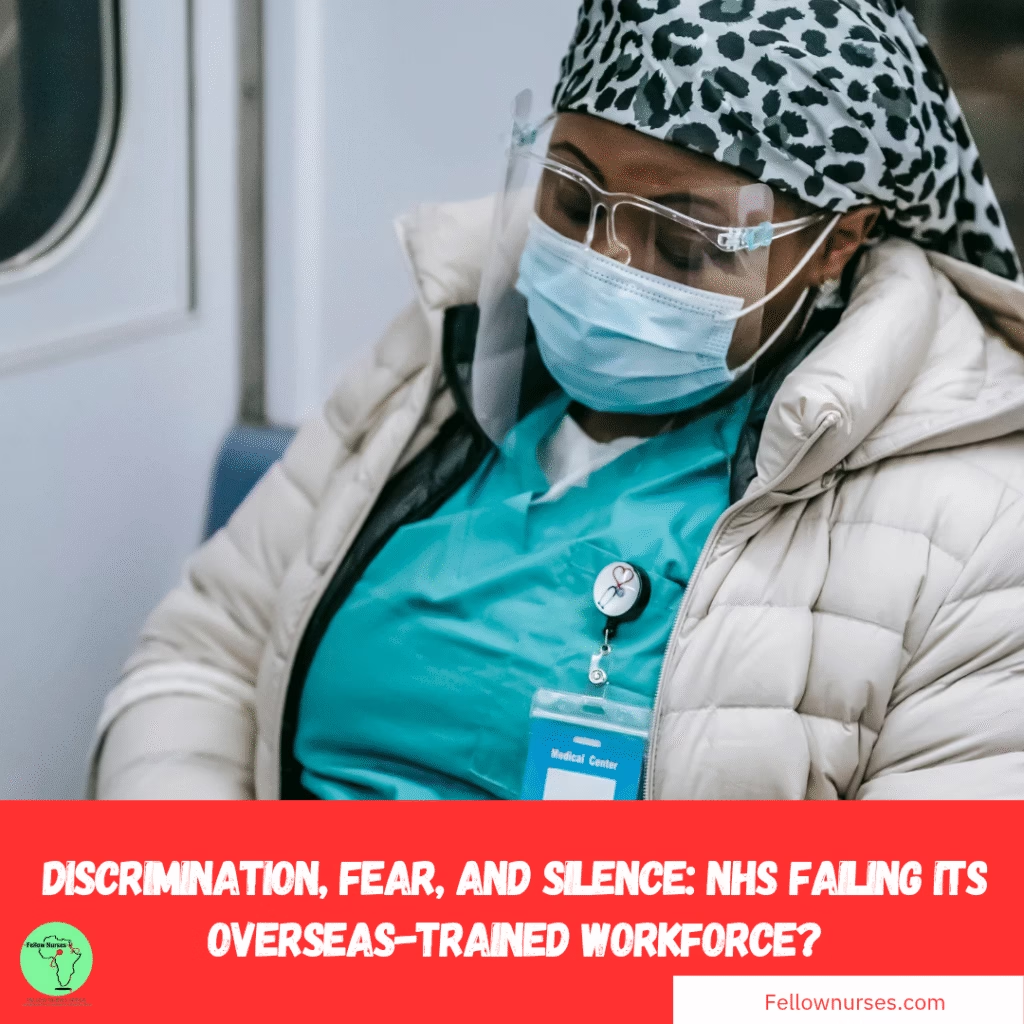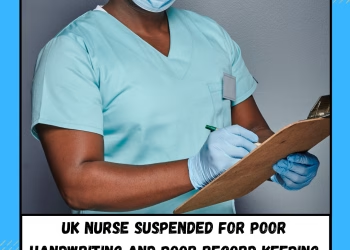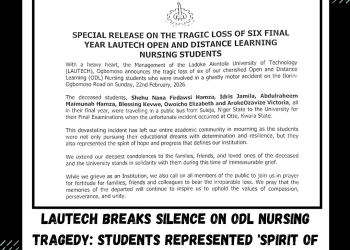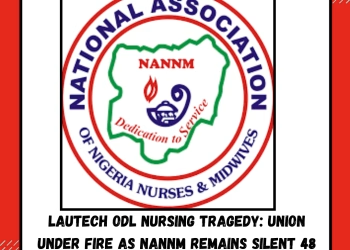Fellow Nurses Africa | May 9th 2025.
Discrimination, Fear, and Silence: NHS Failing Its Overseas-Trained Workforce?
A major review released by the National Guardian’s Office has revealed systemic inequalities and cultural blind spots in the NHS that are leaving overseas-trained healthcare workers vulnerable, unheard, and under-supported.

With nearly 1 in 5 NHS staff trained outside the UK, the NHS relies heavily on international healthcare professionals to sustain services. Yet this new report exposes how many of these workers face significant transition challenges, cultural misunderstandings, and fear of retaliation that prevent them from speaking up when something is wrong.
A Global Workforce, Struggling to Be Heard
Over 850 overseas-trained workers, along with 150 Freedom to Speak Up Guardians and senior NHS leaders, participated in the review, conducted between April and November 2024. These workers—many of whom migrated from India, the Philippines, and Nigeria—described how difficult it was to adapt to life and work in England.
Common experiences included:
- Language barriers and cultural shock
- Visa-linked employment fears
- Discrimination and workplace bullying
- Under-recognition of skills and experience
- Mistrust in the Speak Up support system
“You may speak English, but you speak with an accent… It’s not just language, it’s navigating local lingo and culture that makes it hard to fit in,” shared one nurse.
Speaking Up Feels Dangerous
While NHS policy encourages openness and accountability, the reality for many overseas-trained staff is different. Cultural norms from their countries of origin often discourage speaking against authority. In the UK, those same behaviours can result in isolation or being labelled as “troublemakers.”
“In my culture, raising concerns to seniors is seen as disrespect. Here, I’m told to speak up—but I fear the consequences,” said another participant.
Some felt that the Freedom to Speak Up Guardian role is not inclusive or accessible enough, especially for doctors or minority ethnic staff. Many feared that raising issues—such as unsafe practices or discrimination—might jeopardize their job or immigration status.
A Systemic Issue: Racism, Visa Ties, and Career Stagnation
The review also revealed:
- Disproportionate referrals of overseas-trained staff for fitness-to-practise investigations
- Exclusion from leadership pathways and formal training opportunities
- Cases of exploitation, with some workers forced to repay employers after resigning
- A deep fear of visa-linked retaliation, causing many to stay silent even in unsafe environments
“We came here to build a better life, but without support, we’re left to survive, not thrive,” a participant shared.
4 Key Recommendations from the Review
To address these findings, the National Guardian’s Office has made urgent recommendations:
- Revise the International Recruitment Toolkit to support cultural transition and raise awareness about speaking up.
- Tailor Speak Up structures to allow for anonymity, inclusion, and greater diversity among guardians.
- Improve data collection on overseas-trained staff to better understand their experiences.
- Introduce cultural intelligence training for NHS leaders, managers, and frontline staff.
Implementation of these recommendations is expected to begin immediately, with progress reviews planned through 2026–2027.
Time for Change
This review is not just about policy—it is about people. People who travelled across continents to contribute to the UK’s health service. People who feel unseen, unheard, and unsupported.
At Fellow Nurses Africa, we stand with every overseas-trained healthcare worker facing these challenges. Speaking up should never be a risk—it should be a right. The NHS must do more to create an inclusive, safe, and empowering workplace for all.
Report Source: National Guardian’s Office – Overseas-Trained Workers Speak Up Review, May 2025
Fellow Nurses Africa is the independent voice of African nursing. We educate, inform, and support the nursing workforce.










